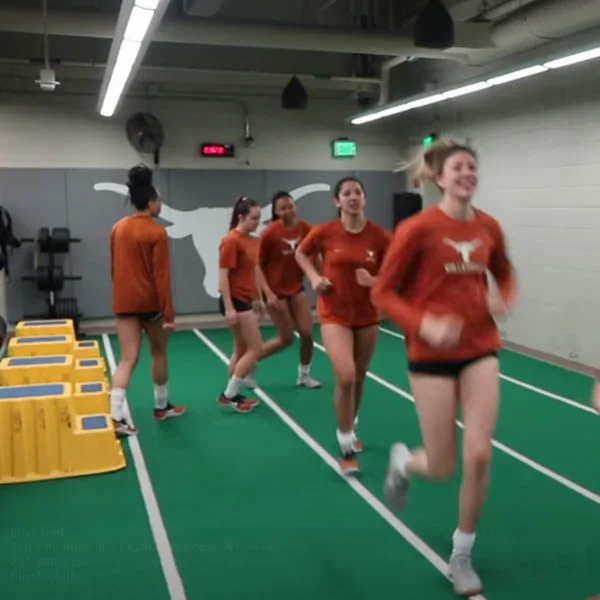
School athletes should be at a healthy weight. The best way to ensure you’re in the proper weight range is to weigh yourself every two weeks and make adjustments accordingly. As a high school athlete, it is essential to eat the appropriate number of calories for your sport and level of physical activity. Ensure that what you eat will give you more energy for practice and games. Here are some ways to gain weight as a high school athlete.
When Should A High School Athlete Hire A Weight Gain Coach

If you’re searching for a high school athlete weight gain coach, you’ve come to the correct spot. Your sports diet’s objective is to gain weight for your squad. This goal might be as simple as gaining extra weight by the autumn or as grandiose as you like. Whichever weight loss goal you have, you’re likely to discover a strategy that works for you.
When picking a weight-gain coach for high school athletes, the most critical consideration is safety. A high school athlete’s physical, emotional, and public health are all impacted by an appropriate weight gain coach. When working with a high-school athlete, it is crucial to watch how much they are eating. You want to avoid causing more damage than is necessary. And your high school athlete doesn’t want to lose their health to lose body weight!
The only healthy way to assist your high school athletes in achieving their objectives is to employ a weight-gain coach. Luckily, several safe and secure coaching services can provide you with the assistance you need to achieve your goals. At Blissfuel, our programs will assist you in reaching your objectives by growing muscle mass, assisting you in achieving your weight gain goals while lowering body fat and providing you with a suitable healthy living plan.
The Healthy Weight Range For An Adolescent
To begin, check that your body weight and mental health are within healthy ranges: This is important since it will aid in injury prevention and performance enhancement. To know if you’re in the proper weight range, use a measuring tape to measure your height and body mass index (BMI).
Athletes should have a BMI of between 18 and 23. If you fall below that line, you may need to gain weight; if you fall over it, you may want to consider one of our weight loss programs.
Eat The Right Amount Of Calories For Your Sport

It is critical to consume the extra calories required for your sport and degree of activity. As a high-school athlete, you should be burning more calories than an average person. You also have a higher need for protein, which helps with muscle growth, recovery, and repair. Chicken, fish, eggs, and dairy products all include protein. Sugary drinks have had a significant role in rising obesity and heart disease. These sugary drinks are not suggested since they may result in medical conditions such as burnout, sugar crashes, and problems, you must avoid them.
When choosing a weight gain coach, knowing the athlete’s goals is essential. For example, male high school athletes need about 3,000-6,000 calories daily, while females need about 2,000-4,000. The best coaches are those who have experience with high school athletes and can provide you with the necessary tools to help your child achieve their goals. The most important thing to remember when hiring a weight-gain coach is to make sure that the plan will work for you. A high-quality coach can make all the difference in your athletic performance.
Pick the right snacks
The best snacks for athletes are the ones that give the most energy. If you need to gain extra weight, you should look for snacks with high levels of carbs and protein. Snacks like fresh fruit, dried fruit, nut butter on toast, cereal with milk, and nuts are good options because they help your body produce energy. If you are an athlete, choose snacks that are high in energy.
Any of the foods I’ve listed below may be packed in a backpack and carried to practice or activities:
- Fruit, such as bananas, apples, peaches, or grapes
- Peanut butter and crackers
- A sandwich
- Oatmeal Cookies
If you’re underweight and not gaining enough extra pounds to aid in recuperation after workouts or competitions, your doctor may recommend protein drinks. Consult your registered dietitian to determine what is best for you. If you cannot consume a large amount of food at one time, have smaller meals and snacks more often throughout the day to allow for weight gain. Consume high-calorie foods such as nuts to help you gain weight, but avoid junk food.
Eat every three to four hours, if possible; This will assist you in fueling your body consistently and gaining healthy fat and muscle tissue with the energy required for the development.
By adding healthy fat to your underweight high school athlete’s regular diet, you may increase their calorie intake. Additionally, it alleviates the pressure and demand to consume larger amounts of food.
The following are some examples of how to increase the caloric content of food:
- Sandwiches may be made with margarine, mayonnaise, or avocado.
- Cooked pasta “dual-dressed” (toss in olive oil, then top with butter or olive-oil soft spread)
- Cooked pasta “dual-dressed” (toss in olive oil, then top with butter or olive-oil soft spread)
If you are an athlete, choose snacks that are high in energy. Instead of reaching for a candy bar, go for a snack that contains complex carbs and lean protein, such as the examples above. If you are not an athlete yet want to gain extra weight, avoid munching on fatty meals excessively. Avoid fried meals and sweets, particularly junk food. By selecting healthy fats such as nut butter, seeds, and avocados, you may gain weight without compromising your healthy eating habits.
Make Healthy Food Choices At School

The extra calories required to gain weight as a high school athlete varies according to your sport and level of activity.. For example, if you are a high school basketball player who practices three times per week, you would need 460 more calories per day than someone who doesn’t play any sports.
Eat At School:
- It is possible to gain weight by eating the appropriate number of calories for your sport and level of exercise. However, the first step is making healthy food choices at school.
Have A Protein Shake:
- If you’re not overdoing it with carbs or sugar, a protein shake can help make up for the lack of protein in your diet. Try having one daily before workouts and before dinner. The simplest method to create one is to combine a scoop of whey protein powder, yogurt (or almond milk), water, and fruit in a blender (optional).
Drink More Fluids:
- Even though many people associate fluid intake with losing extra pounds, it also plays a vital role in gaining importance as an athlete because fluids provide nutrients lacking in your diet, such as potassium, sodium, calcium, Etc. Drinking more fluids will also help keep you hydrated, which is essential before games or practices when breathing hard and sweating excessively.
Add Peanut Butter To Oatmeal:
- By adding nut butters to oatmeal, you may boost the calorie and fat content without substantially altering the taste or a lot of added sugar.
If you are a slim high school athlete and finding it difficult to make good meal choices at school, start small. If you eat one nutritious meal at school for the first week, increase to two healthy meals per day for the second week.
Make Certain that you consume a suitable quantity of protein, carbs, fat, and fiber daily. After one month of concentrating on improving your school’s healthy eating habits, you’ll see significant changes in your body composition, including an increased appetite and physical appearance. You could even notice that you’re gaining weight!
Make Healthy Food Choices Away From School
Watching what you eat when school is in session can be challenging. When you’re not in the cafeteria, there are many other places to find junk food. Don’t allow yourself to make unhealthy decisions outside of school.
Choosing a weight-gain coach for your team is an important decision. While an experienced sports nutrition coach will have the expertise to provide personalized guidance to athletes, they should also have the skills to guide young people. A weight-gain coach should be a trained professional who can help your young athletes gain the necessary extra pounds for the sport they play. Consider your athletes’ age and gender as well.
Create A Routine For Cooking And Eating
One of the most important things to do when trying to gain weight is to have a routine for cooking and eating. Your stomach will be more likely to accept more food if you prepare it in advance. So, make sure you have time on the weekend or during your free periods at school to cook.
When meal prepping, make sure you prepare food that will give you energy for practice and games. Add healthy fats such as avocado, salmon, eggs, and nuts to your diet. And don’t forget about protein! Protein helps build muscle, which can help with gaining weight faster.
Don’t forget about hydration! Drink lots of water or other beverages throughout the day that are high in electrolytes like coconut water or Gatorade: This will keep you from feeling drained and hungry during practice and games.
Stay Hydrated

Consuming water assists in keeping your body hydrated and is an effective strategy to improve your calorie intake. Having more water will also help you feel fuller, which means you’ll need to eat less to feel satisfied.
Unintentional Gaining weight
Unintentional weight gain can result in hypertension. Consult your doctor if you have unexplained weight gain and suspect you may have fluid retention. It’s important to be familiar with the possible health hazards associated with significant weight gain. Obesity may result in stress, diabetes, heart disease, stroke, rheumatoid arthritis, and some types of cancer.
Your physician can assist you in determining if your weight is appropriate for your height. They can also help you determine how many calories you require each day and how to increase your exercise to avoid unnecessarily gaining weight.
There are several reasons why individuals acquire weight rapidly. Among the most prevalent are the following:
- Consuming Fewer Calories Than You Burn
- Consuming An Excessive Amount Of Liquid Calories
- Retaining Fluid
- Sleep
Certain individuals with thyroid disorders or Cushing’s syndrome may experience unexplained weight gain. Individuals suffering from depression may also struggle to lose excess weight, even when they adhere to a balanced diet and exercise routine. For these reasons, it is censorious to consult your physician if you are concerned about rapid weight gain or have been unable to lose weight despite your best efforts.
Sleep Deprivation Can Result in Unhealthy Weight Gain

According to Mayo Clinic, research indicates a link between sleep deprivation and harmful metabolic alterations. In adults, sleeping four hours per night vs. ten tends to boost hunger and desire – particularly for calorie-dense, carbohydrate-dense meals.
Sleep is critical for weight increase since sleep loss may result in harmful weight gain. Teenagers need between 8 and 10 hours of sleep every night, and those who do not get enough sleep will have problems gaining weight.
The primary factor affecting health and weight gain during sleep is ghrelin. Ghrelin is an appetite stimulant, and when you are sleep-deprived, your body creates more ghrelin. When you do not get enough sleep, your body will feel more hungry than it should, and you will most likely overeat.
Along with boosting ghrelin levels, sleep deprivation reduces leptin levels. Leptin is a hormone that allows the body to sustain a healthy energy balance and lowers appetite. A decrease in leptin levels increases appetite and poor eating habits.
Sleep also plays a role in physical performance, which is important for high school athletes during workouts and games. Inadequate sleep may impair athletic performance, resulting in less developed muscle mass. If an athlete’s body cannot keep up with their training regimen due to a lack of proper rest, they will have difficulties building muscle growth.
What Is An Effective Method Of Gaining Weight If You Are An Underweight Athlete?
Body fat has a negative reputation for contributing to overweight and obesity in humans. However, not all body fat is detrimental to health. Indeed, converting and storing energy (calories) as fat is beneficial: This is only one of the several ways the body uses food to operate, heal, and expand.
While being slim is often helpful, being underweight may be dangerous if the result of insufficient nutrition, pregnancy hormone levels, fluid retention, or other health problems, the Mayo Clinic reports. As a result, if you are underweight, you should see a physician or dietitian. You and your physician may work together to develop a plan for obtaining your ideal weight.
Fat-stored energy enables you to complete a demanding task or exercise. It is critical for brain growth and the prevention of inflammation (swelling) and blood clots. Additionally, fat adds to the health of the hair and skin.
A Body Mass Index (BMI) calculator may help you assess underweight. This online test generates a score based on your weight, height, age, and gender. You are underweight if your BMI is less than 18.5. Additionally, your registered dietitian can assist you in determining whether you are underweight based on your height, weight, the foods you consume, and your level of exercise.
Your doctor may recommend a weight-gain regimen if you are underweight: This is not, however, a license to binge on junk food. Healthy weight growth, like weight reduction, demands a balanced strategy.
Consuming junk food may result in weight gain. However, it will not provide your body with the nourishment it requires. Even if the calories, sugar, and salt in junk food do not cause excessive weight gain. It may still be detrimental to your health.
The following techniques may assist you in achieving a healthy weight gain:
Increase Calories In A Healthy Way
- You do not need to make dramatic dietary changes. Increase calories by topping with nuts or seeds, cheese, or healthful side dishes. Almonds, sunflower seeds, fruit, or whole-wheat bread are good options.
Consider Increasing Your Nutritional Density
- Rather than consuming empty calories and junk food, choose nutrient-dense meals. Consider high-protein meats, which may aid with muscle development. Additionally, minimize unintentional weight gain by choosing healthful carbs such as brown rice and other whole grains. It helps guarantee that your body receives the most food possible to maintain a healthy weight gain, even if you have a decreased appetite.
Less Take Of A Snack
- Eat foods high in protein and low in unhealthy carbs to avoid sudden weight gain. Consider trail mix, protein bars or beverages, and crackers with hummus or peanut butter as possibilities. Additionally, consume snacks that include “healthy fats,” which are critical for preventing heart disease. Nuts and avocados are two examples.
Consume Small Portions
- If you have an appetite reduction due to a medical condition or an emotional issue, the increased appetite may seem undesirable. Think about eating fewer calories every day to increase your caloric intake.
Increase In Weight
- While excessive cardiovascular activity burns calories and works against your weight loss goals, strength training may assist: This includes exercises such as weightlifting or yoga. Muscle mass is gained by practice.
Consult your physician before commencing a weight-gain program. Obesity may be an indication of a more severe underlying health problem. It cannot be remedied with dietary modifications. Your doctor will be able to help you in monitoring your progress. They will ensure that positive improvements occur.
My Final Take On Gaining Weight For High School Athletes
A good weight gain coach will understand that the best training program allows you to meet your goals: This means that the weight-gain coach will take into account the needs of the athlete and their specific sport. The right sports nutrition program can improve your performance in many ways. While high school athletes may be the best in their class, they will not perform at peak levels without proper nutrition.

0 Comments